As a poultry farmer, you're probably all too familiar with the downsides to a wet litter floor. Now, dealing with moisture in general isn't a difficult task unless you're trying to deal with it in an environment used to grow food—like your poultry houses. There are many toxic and less-than-ideal ways to get rid of moisture, and most of these ways are unhealthy and thus not recommended for use around birds. If something corrodes the metal equipment in your poultry houses, just think about what it must also be doing to your feathery assets walking on that floor!
Causes of Wet Litter
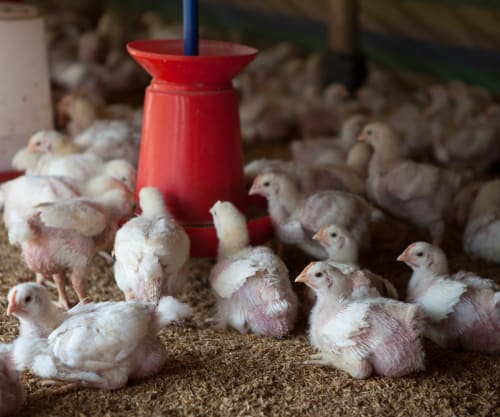
Nipple overflow is one factor that can contribute to wet litter. Because a bird's beak can only hold so much water, any excess goes onto the floor. Monitoring water at the nipple will help keep your floor dry.
Improper ventilation, leaky water lines and poor drainage from storm runoff can also create wet poultry litter. While these are problems that require plain ol' manual labor to fix, we can help with the more difficult causes of moisture in the house: the bacteria-related problems.
Runny, liquid-y droppings are a huge challenge to keeping floors not only dry, but healthy. Droppings are packed with harmful bacteria, and when they’re loose, that bacteria runs rampant, especially when the litter has high moisture already. Tightening birds’ guts can help! Check out our Scoop on Poop video for tips on how to tighten your birds’ guts, and as a result, keep the floor drier.
Even in cases of water accumulation from leaky water lines and poor drainage, our poultry litter amendment, Litter Life, effectively dries the litter floor.
Effects of Wet Litter
High levels of moisture in poultry house litter can have many adverse effects, including:
-
Bacteria will grow, which can cause all types of disease and let ammonia-producing microorganisms flourish.
-
The presence of insects will increase.
-
You will find burned feet, breast blisters, and many other physical problems on your birds.
And if that's not enough, there will probably be some carcass downgrading in your future if you're growing in broiler houses. To prevent and combat wet litter problems, it's essential to have effective litter management practices in place.
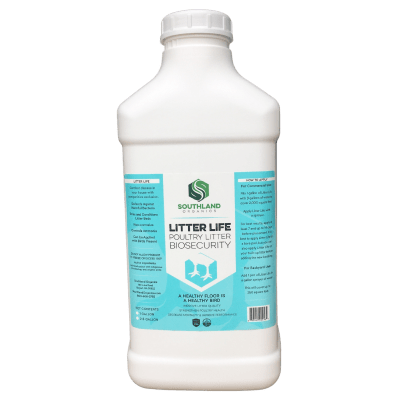
Effective Litter Management
There are many different approaches to litter management in the poultry industry. You can clean out, cake out, windrow—but those happen between flocks. How can you manage litter when birds are present? The key to litter decomposition and drying the floors—even with birds in the house—is maintaining the proper carbon to nitrogen ratio.
Our litter amendment, Litter Life, adds biologically active, organic carbon and organic acids to balance the ratio and help accelerate the decomposition process. This accelerated process of breaking litter down naturally keeps moisture from building up.
Carbon to Nitrogen Ratio
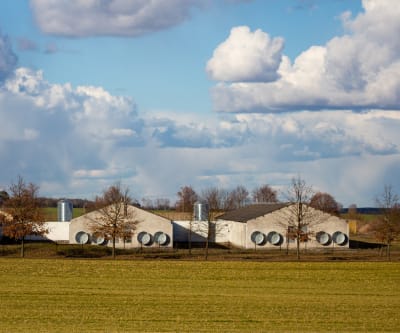
You don’t have to search far to find the importance of the carbon to nitrogen ratio in composting. When the C:N ratio is in proper balance, decomposition is greatly accelerated. About 25:1 to 30:1 is the ideal range. When this ratio is not met, decomposition takes longer, which leaves excess moisture in the litter.
By its very nature, decomposition dries the organism. Washington State University found that when the C:N ratio is low, the available carbon is used up, and the excess nitrogen is released as ammonia. For this reason, one to two days after spraying Litter Life, you can open your poultry houses to allow for ammonia release.
Litter Caking
Another obstacle to keeping a dry floor is when litter caking takes place. The organic fulvic acid in Litter Life penetrates and breaks up compacted soil. Each fulvic acid molecule is highly oxygenated.
Whether you're planting a tree in hard ground or needing to break up a litter cake, organic acids penetrate and aerate. Litter Life has many benefits, and reducing litter moisture is one of its greatest.
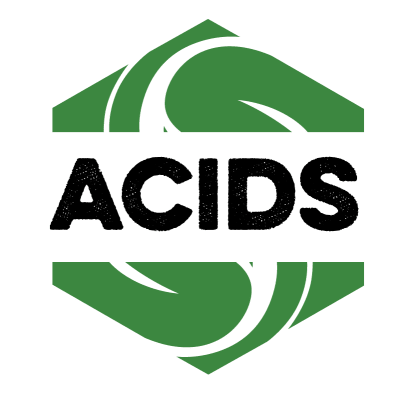
Safe and Organic Treatment
Besides being extremely effective, Litter Life is also organic. Until recently, litter treatments weren't being certified for organic use. We received our first approval in 2015 from the State of Pennsylvania. Our poultry probiotic Big Ole Bird was certified in 2014 and has paved the way for Litter Life.
Because Litter Life doesn't include harmful ingredients like ammonia-reducing chemical additives, you can use Litter Life with birds in the house, and you don’t have to worry about getting it on your person. It's a natural solution to a natural problem. Maybe you can trade those mud boots in for a pair of flip flops. Well, maybe not quite, but you get the idea!
Tips for Applying Litter Life
It's best to apply Litter Life on a bare pad, so the good bacteria in Litter Life are able to get down into the dirt to competitively exclude the bad bacteria like E. coli and Clostridium. Applying Litter Life before placement also introduces beneficial biologically active, organic carbon to the floor.
If you're not able to apply on a bare pad, apply Litter Life on your built-up litter before adding the new bedding material.
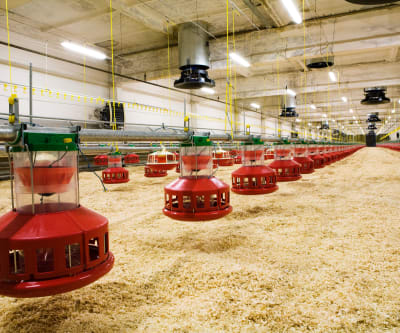
Contact Us
If you have any questions about how to keep poultry litter dry with Litter Life, feel free to reach out to Allen Reynolds at allen@southlandorganics.com or give us a call at 800-608-3755.






